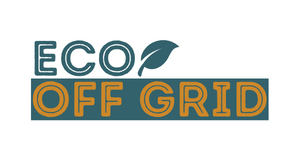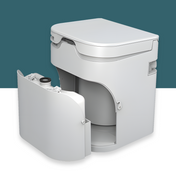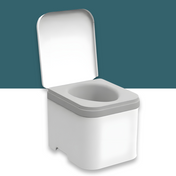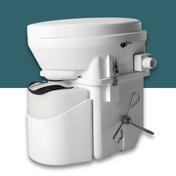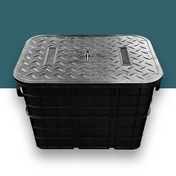Imagine moving onto your dream block of land, only to find your fridge drains the entire solar system in a day, or your water tank runs dry after the first week.
Going off grid without the right preparation can turn excitement into stress fast.
The good news? With smart planning and the right setup, off-grid living can be simple, sustainable, and one of the most rewarding choices you’ll ever make.
That’s why it’s important to go in with your eyes open and avoid the 7 common mistakes that catch beginners out time and time again.
Mistake #1 — Skipping the Foundations of Off-Grid Living
One of the biggest mistakes is rushing in without a clear plan. It’s easy to get caught up in the dream of solar panels and water tanks, but if you don’t ask “What do I need for off grid living?” you’ll quickly run into problems.
Off grid living essentials like power, water, shelter, waste, and food storage are your foundation. Miss one, and everyday life becomes much harder than it needs to be.
How to Avoid: Begin with a clear checklist of the basics. Once those are sorted, you can build on them with comforts and extras, knowing your setup is solid.

Mistake #2 — Underestimating Off Grid Power Needs
Power is one of the trickiest parts of living off grid, and many beginners get it wrong. They set up a small solar system, thinking it would cover everything, only to find their fridge, lights, and devices drain it far too quickly.
Running short on power doesn’t just mean inconvenience; it can also mean food spoiling, nights without light, and constant frustration.
How to Avoid: Take the time to calculate your daily energy use before investing in a system. Add up the appliances you’ll rely on, think about seasonal changes, and always allow extra capacity for the unexpected. You can avoid shortfalls by choosing the right solar generator for your needs.
Mistake #3 — Overlooking Off Grid Water Setup and Waste Systems
It’s easy to focus on power and shelter while forgetting about water and waste. But without a reliable water supply and a plan for toilets and greywater, day-to-day life off grid quickly becomes uncomfortable and sometimes unsafe.
Many beginners underestimate just how much water they’ll need, or they assume a simple tank will be enough. Others move in without thinking about waste, only to realise they’ve got no proper toilet system in place.
How to Avoid: Plan your water and waste systems before anything else. That means looking at rainwater collection, storage tanks, and filtration, as well as composting toilets and greywater solutions.

Mistake #4 — Choosing the Wrong Location
The land you choose can make or break your off grid experience. Some people jump on cheap land only to discover later that it floods in winter, is a bushfire risk, or doesn’t have road access. Others find out too late that local council rules won’t allow the setup they had in mind.
These oversights can turn your dream land into a nightmare, adding huge costs and ongoing challenges.
How to Avoid: Before buying or setting up, research the area thoroughly. Check local planning and zoning laws, bushfire and flood risks, access roads, and even mobile coverage. Visit the property at different times of the year if possible.
Mistake #5 — Underbudgeting the Reality
Going off grid can save money in the long run, but the upfront costs often surprise beginners. Solar panels, batteries, water tanks, composting toilets, and even basic tools all add up quickly. On top of that, there are ongoing expenses like replacing batteries, servicing systems, and general upkeep.
Without a realistic budget, it’s easy to run out of funds halfway through your setup or end up cutting corners that cost more later.
How to Avoid: Be honest about your budget from day one. Factor in delivery, installation, and maintenance costs. For a closer look at one major expense, see our guide on solar power costs for Australian homes.

Mistake #6 — Forgetting Practical Comforts
When planning an off grid setup, it’s easy to focus only on survival basics: power, water, and waste. But forgetting about everyday comforts can make life feel harder than it needs to be. Things like proper lighting, a reliable fridge, or even a comfortable place to sit can make all the difference in how enjoyable your new lifestyle feels.
Many beginners end up frustrated when they realise their setup doesn’t support simple comforts they once took for granted.
How to Avoid: Think about how you actually live day to day. Include reliable off grid solar power systems, good lighting, and a few personal comforts in your plan. Off-grid life should be practical, but it should also feel like home.
Mistake #7 — Trying to Do Everything Alone
Many people dream of complete independence when going off grid, but trying to do it all by yourself can be overwhelming. From setting up solar systems to managing water, waste, and maintenance, the workload adds up fast, and mistakes can be costly.
The truth is, no one builds a successful off grid life entirely on their own.
How to Avoid: Reach out for support. Connect with local trades, join off-grid or sustainable living groups, and learn from others who’ve already made the transition. You can also explore our how-to guides and articles to help you build your off-grid setup with confidence.

Frequently Asked Questions
1. What do I need for off grid living?
At the very minimum, you’ll need reliable solar power solutions, a safe water supply, proper shelter, and systems for waste and food storage. These are your non-negotiables, and getting them right forms the foundation of a successful off-grid lifestyle.
2. How much does it cost to live off grid?
The cost can vary widely depending on your setup. Some people keep it simple with the basics, while others include larger off-grid solar systems, backup generators, and extra comforts. Whatever your setup, planning well and allowing for maintenance is essential.
3. Can I legally live off-grid in Australia?
Yes, you can. Off grid living is legal across Australia, but each state and local council has its own rules. You may need approval for things like septic systems, rainwater collection, or new buildings, so always check local regulations before setting up your off-grid home.
Plan Smart, Build Right

Going off grid is a big step, but it doesn’t have to be overwhelming. By avoiding these seven common mistakes and using our Off Grid Checklist, you’ll set yourself up for a smoother, more sustainable journey.
The goal isn’t just to survive off the grid, but to create a lifestyle that’s practical, comfortable, and rewarding. With the right preparation and a clear plan, you can build an off-grid setup that truly works for you.
